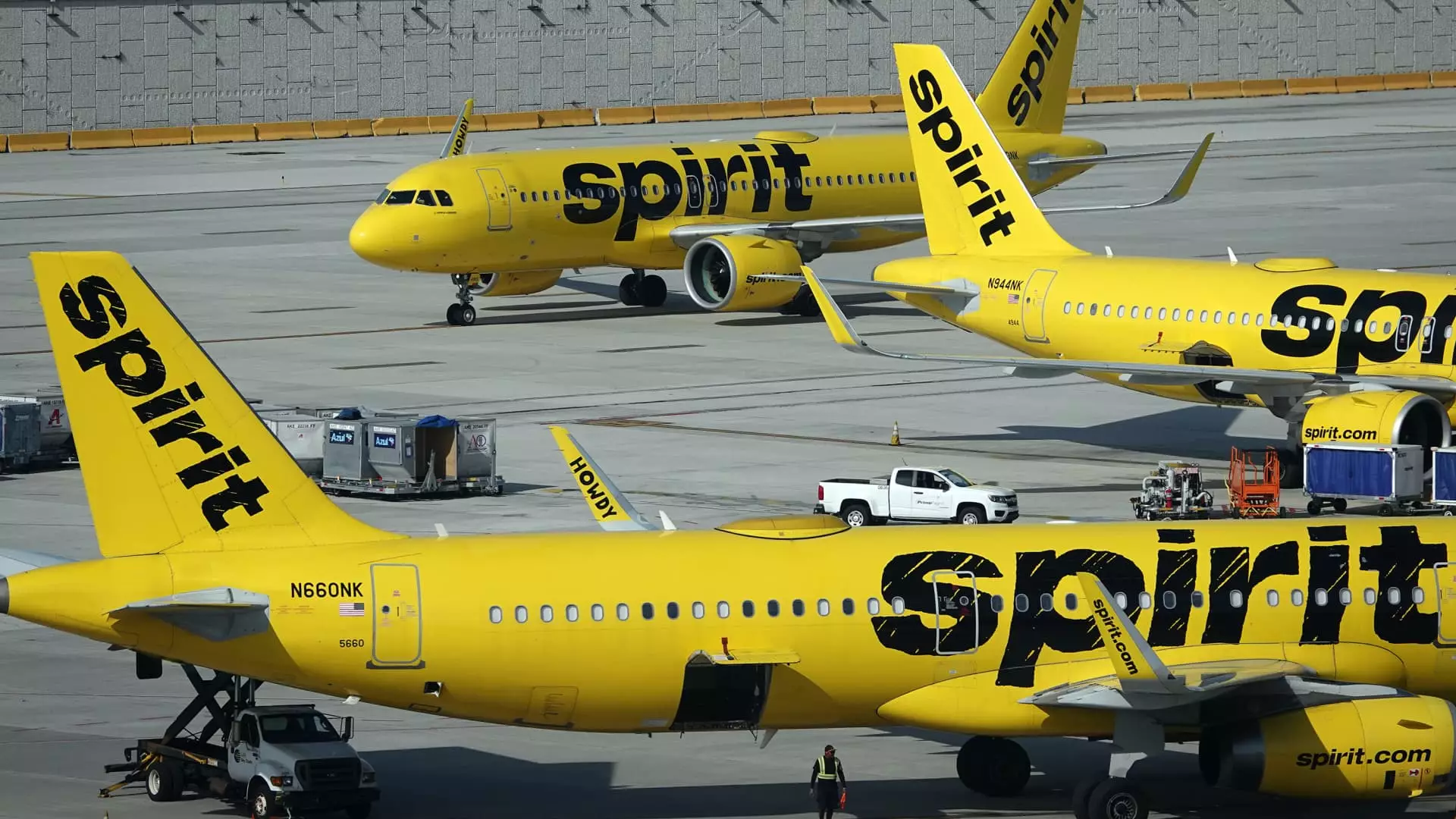In a strategic maneuver to combat financial difficulties, Spirit Airlines announced plans to cut jobs and divest from a portion of its aircraft fleet. This revelation caused a notable surge in the airline’s stock price, with shares climbing 16% on Friday to close at $2.79. While the immediate reaction in the stock market appears positive, investors should carefully consider the underlying issues that prompted these drastic measures. A quick stock price increase can often mask persistent operational challenges that the company must confront to achieve long-term stability.
The airline revealed in a recent securities filing that it intends to sell 23 older Airbus aircraft in an effort to raise upwards of $519 million. This plan aims not only to generate immediate cash flow but also to alleviate some of the company’s significant debt burden. Such asset sales, however, indicate deeper issues within Spirit Airlines, including an inability to maintain fleet efficiency and adapt to shifting market demands post-COVID-19. While raising capital is crucial, the reliance on asset liquidation raises concerns about the airline’s future operational capacity.
Alongside the aircraft sales, Spirit Airlines plans to implement cost-cutting measures that are projected to save around $80 million. Significant job cuts are expected, although the company has yet to disclose the exact number of positions affected. These layoffs may discourage employee morale and impact service levels, further complicating the airline’s efforts to recover from its pandemic-era struggles. It is worth noting that the airline began furloughing approximately 200 pilots in September, indicating that operational downsizing is already underway.
Adding to its tumult, Spirit Airlines recently delayed a critical deadline pertaining to the refinancing of over $1 billion in debt. Originally due soon, the new deadline has been pushed to late December, offering the airline temporary breathing room, especially regarding payments to its credit card processor. However, this postponement highlights the precarious situation Spirit finds itself in, exacerbated by the broader challenges of a volatile travel market and supply chain issues that have hindered its recovery.
The airline’s recent struggles have triggered renewed discussions of potential mergers, particularly with Frontier Airlines. Having previously pursued a merger that was derailed by JetBlue Airways’ acquisition attempt, both airlines are standing at a crossroads. Such discussions could bring a sense of stability and synergy to Spirit if they materialize; however, they also introduce uncertainty, especially as Spirit still grapples with operational effectiveness and profitability.
While Spirit Airlines may showcase a temporary rise in stock prices due to its announced strategies, the airline’s future remains uncertain. With job cuts, asset sales, and challenges in reducing debt, the approach appears to be a last resort to navigate turbulent waters. It will be critical for the airline to not only execute these plans effectively but also to develop a sustainable long-term strategy that prioritizes operational resilience and customer satisfaction moving forward.

